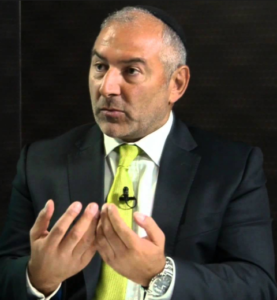The IB model in retail FX is flawed and needs to change – Here is why
It’s not enough these days to just cover the MT4 white label cost for very important strategic partners and IBs. We take a look at what high quality IBs with top level client bases and 30 years experience are finding lacking in the current IB model, and how this can be remedied

For retail FX brokerages, selecting and establishing long term relationships with good quality strategic partners and introducing brokers that can refer and administer a long standing and loyal client base has been a vital component of the business for quite some years now.
The question is, is the current modus operandi sufficient and suited to ensuring that both the introducing broker or partner and the brokerage are aligned enough with each other to help drive each other’s business forward for mutual benefit and efficiency?
During the past few weeks, FinanceFeeds has noted some degree of discourse from introducing brokers with high quality client bases and a good understanding of the entire electronic trading industry in that in certain cases, lack of commitment continues to exist.
During some extensive research among introducing brokers in the United States and Britain which have high net worth client bases, it had become apparent that there is a lack of alignment between introdcer and retail FX firm in that sales staff often push the introducer for introductions and referrals and yet make no commitment or investment in garnering such clients, thus there is no loyalty or input on the brokers’ part.
An age old facet of corporate banking criteria still remains in most business today, that being that if a small businessman, in any sector, approaches his corporate bank manager for a loan and wants to borrow 100% of the value of setting up the business, the bank will never lend.
Not because of the lack of likelihood that there is a viable business there, but because of the pure pshychology that if those partnering with a business do not invest in their own efforts, there will be no commitment and a likelihood of apathy setting in at an early stage.
It has been suggested this week that a number of retail FX firms just want to push IBs for deposits, and not have any actual vested interest in their business, tehrefore they will not make the effort to make this work.
Long term, firms need to take 10 to 20 good quality IBs with a large and loyal client base, invest in their business, and provide the right resources to encourage the IB to be an integral part of the brokerage to which he refers business – basically clients that are loyal and have been garnered over a long period of time and will usually follow the introducing broker to another firm should an unsatisfactory level of service and support be provided.
Today, FinanceFeeds spoke to Meir Velenski of Velenski Financial Ltd, an FX industry professional with over 30 years of experience at senior level.
He explained “The financial industry has many ways of attracting business, one of them is through introducing brokers, however whereby the level of investment and regard to other approaches is considered a clear and obvious way to attract new business the approach to IB is of much lower regard and level of investment.”
Mr. Velenski continued to explain “The industry considers IB business to be effectively free of charge and free of commitment, and as a result of this the whole industry needs to decide to either take the IB seriously and offer commitment and investment or stand up and decide or declare the IB redundant.”
Many introducing brokers with high net worth customer bases in top quality jurisdictions have explained to FinanceFeeds that in some cases, a sales push is provided to an introducing broker at the time of signing the partnership agreement, many introducers having experienced a set of key sales points such as DMA execution, low spreads, and then a question “How much can you bring us?”.
This is a short termism which is potentially damaging to the longevity of broker and IB client bases and relationships.
On this subject, Mr. Velenski explained “There are so many good quality IBs producing good quality business in the market but they are camouflaged and hidden by the poor IBs or produce poor quality business. The industry needs to identify the good quality introducing brokers and invest heavily in ensuring that there is long term synergy to make the R O I profitable and effective.”
Ironically, despite the reluctance to invest in partnerships with good IBs that can last for several years and generate a high revenue for low resource expenditure (this is a relationship business after all!), some firms are still spending a large amount of company budget on football sponsorship or one-off extravagent B2B parties which can run into 6 figures sometimes yet are branding exercises rather than revenue earners.
Football sponsorship is a case in point. That is an expensive folly, has lowbrow connotations and the conversion rate is low, and yet within that conversion rate, the customers are small value one-time traders with low deposits, meaning that the brokerages have to continue to onboard new ones at vast cost, rather than engage a good IB which will bring managed portfolios and loyal high net worth clients.
Mr. Velenski said “The weakness today is that firms are willing to take on any IB if he can bring in ” a mate” or a contact but has no intention or know how to grow his ( the IB) business.”
“The CFD business and Prime broker business needs to look intensely and choose specific IBs say 20/30 good quality professional IBs and raise the level both ways of business and investment” continued Mr. Velenski.
Mr. Velenski considers the key aspects to be looked at in addition are the IB managers and directors at the investment firm. “The change needs to be whereby directors really should come from the IB background and have had experience being IBs themselves” he said.









